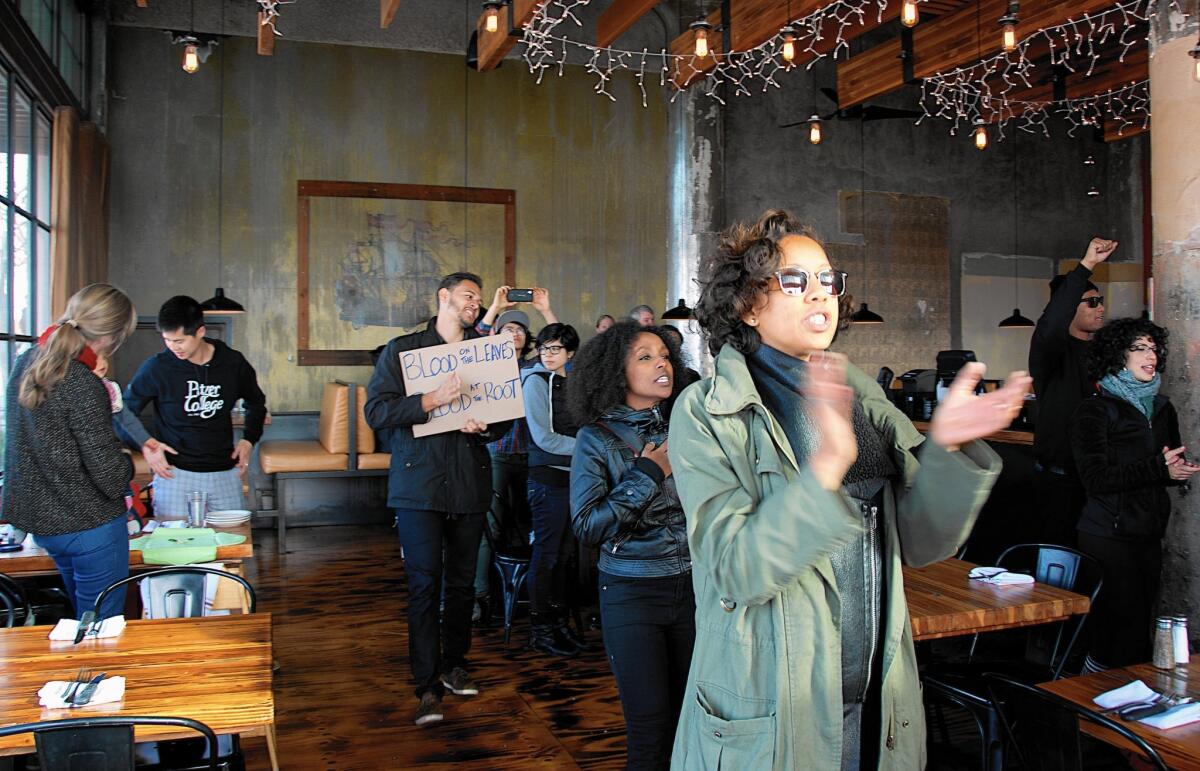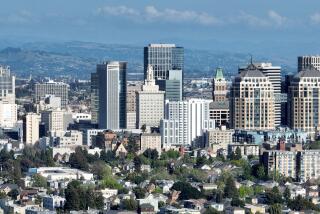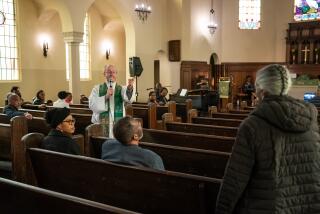#BlackBrunch brings peaceful protest to Oakland restaurants

OAKLAND — In restaurant after restaurant in this city’s gentrifying Jack London Square neighborhood Sunday, it happened quickly.
As diners enjoyed the first weekend brunch of the New Year, three dozen African American activists — clad in black — filed in. With megaphones in hand, they began an incantation.
“Every 28 hours, a black person in America is killed by the police, a security guard or a self-anointed vigilante. These are our brothers and sisters, our families. Today and every day, we honor their stolen lives.”
Then came the names. The men. The women. And the youths: Trayvon Martin, 17. Kimani Gray, 16. Cameron Tillman, 14. Tamir Rice, 12. Aiyana Stanley Jones, 7.
After each, the group collectively proclaimed “ashe” (ah-SHAY), a Yoruba term that translates loosely as “amen” or “so be it.” They then called on patrons to stand in solidarity. Some did. Some didn’t.
Singing, they filed out.
This is the same Oakland where decisions last fall by grand juries in Missouri and New York not to indict white police officers in the deaths of unarmed black men spurred the most persistent protests nationwide.
It’s the same Oakland where those protests have in many instances devolved into vandalism, street fires and looting — often committed by small groups of young white men who self-identify as anarchists.
Now, it is the birthplace of #BlackBrunch, a tactic that has gone viral.
Sunday marked the first #BlackBrunch held in Manhattan — just before the Jack London Square action popped in solidarity. Others have taken place in Boston and Baltimore in recent weeks. And on Saturday, UC Berkeley’s Black Student Union organized one on that city’s posh 4th Street.
The idea was born in a North Oakland living room. Wazi Maret Davis, 23, who sports a buzz cut with one long braid in back, was spurred to act on Dec. 5 — the night the grand jury declined to indict in the Staten Island chokehold death of Eric Garner, 43.
As after the late-November decision in the death of Michael Brown in Ferguson, Mo., there was a street protest organized in downtown Oakland. A black woman was speaking.
“Then all of a sudden a white guy took the megaphone and said, ‘We’re marching,’” Davis recalled Sunday. “There was no real intention, no strategy. What ended up happening is black people and people of color got left behind, because we didn’t feel safe.”
Getting swept up in someone else’s agenda when the protests deal so centrally with black life didn’t feel right, Davis recalled.
“I sent out a text telling people to come to my house if they wanted to do something by us, for us,” Davis said. “We started brainstorming about what a movement led by young black people could look like.”
They turned to history, discussing the Montgomery bus boycott and lunch counter sit-ins — “types of civil disobedience that were about disrupting the system, stopping business as usual.”
The first event was held the following weekend in Oakland’s affluent Rockridge and Piedmont neighborhoods.
#BlackBrunch is a tactic, not an organization. Over the last month, participants have joined from a group known as BlackLivesMatter as well as from the BlackOut Collective, which serves as a training entity in direct nonviolent protest for the black community nationwide.
Shayna Cureton, 29, of Berkeley said Sunday that organizers from disparate groups have been drawn to #BlackBrunch and other recent peaceful protests because they crave “actions that are meaningful and nonviolent, and also black-centered.”
The Collective was a key player in a separate event on Black Friday at which activists with arms chained together stopped trains for hours at the West Oakland Bay Area Rapid Transit station. It brought misdemeanor charges against 14 protesters and a potential fine of $70,000 — a decision organizers are pressing through a petition to reverse. Those arrested in more destructive actions, they note, have not faced fines anywhere near as steep.
On Friday, BART’s general manager released a statement saying she is aware of the petition but said the protest created “mobility problems for thousands of people … [and] was intentional and potentially dangerous to our passengers.”
The brunch actions have a more intimate reach, but not all patrons or restaurant managers are supportive. Inside Buttercup Grill on Sunday, two men stared awkwardly at their plates while activists read off names.
At Bocanova, the manager, who declined to give his name, said he was “not at all” pleased. Yet more than a dozen diners there stood up in support when asked, “Are you with us?” Meredith Stout, 78, of Berkeley, who was waiting for a table, said afterward that she found the young activists to be “very impressive.”
“They’re so purposeful and so intelligent and I think they only want justice and peace,” said Stout, who added that she has the “highest respect” for police but “I’m not a person of color, so it’s easy for me.”
At Lungomare, nearby, a security guard radioed for help and told organizers that the owner wanted them to leave “immediately.” But customer Sue Gegner, 64, of Hayward said she was all for it.
------------
FOR THE RECORD
Jan. 5, 11:55 a.m.: An earlier version of this article misspelled the name of restaurant Lungomare as Lungamore.
------------
“People may think it’s inconvenient, but what about the issues they are trying to bring to light?” asked Gegner, who is white. “Losing your life is pretty inconvenient. And peaceful protest has [historically] accomplished a lot.”
At Forge restaurant, manager Katherine Pinson, 33, welcomed the group.
“I think it’s beautiful,” she said. “It’s a message that needs to be heard, and if they have to disrupt business and daily life for a minute, then I’m glad we could help.”
More to Read
Sign up for Essential California
The most important California stories and recommendations in your inbox every morning.
You may occasionally receive promotional content from the Los Angeles Times.











